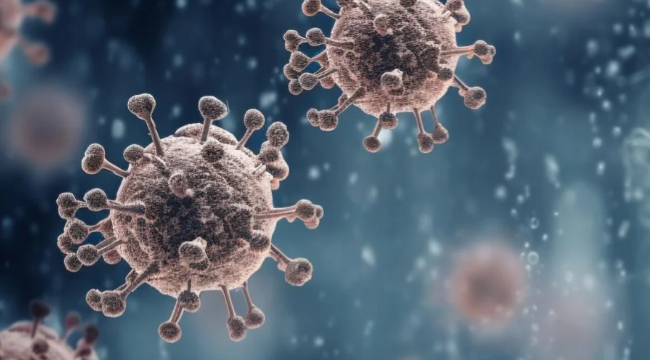The ongoing COVID-19 pandemic continues to raise concerns about its long-term health consequences, particularly regarding neurological symptoms that persist long after the initial infection. Many individuals who have recovered from the acute phase of COVID-19 report symptoms such as chronic fatigue, cognitive decline (e.g., memory loss, decreased concentration), headaches, dizziness, and other neurological symptoms, collectively known as Long COVID [1, 2]. These symptoms can significantly impact quality of life [3] and have become a major focus of research efforts worldwide.
A new study by Barros-Aragão et al. (2024) [4] suggests that brain inflammation may play a key role in long-term neurological effects of COVID-19. The study found elevated levels of pro-inflammatory cytokines and significant changes in cerebrospinal fluid (CSF) among hospitalized COVID-19 patients with neurological symptoms. Higher levels of certain proinflammatory cytokines correlated with more severe cases and observable brain changes. However, even patients with milder cases showed significant changes in the CSF, suggesting that brain inflammation could play a key role in the neurological effects of COVID-19. The correlation between inflammatory markers and brain imaging findings underscores involvement of brain-immune interactions and the need for long-term monitoring of symptoms experienced by many COVID-19 survivors.
Key Highlights
- COVID-19 can cause neurological symptoms even in patients without severe respiratory issues.
- Patients show similar changes in cerebrospinal fluid, the liquid surrounding the brain and spinal cord.
- Higher levels of inflammatory markers like IL-6 in the CSF correlate with more severe COVID-19 cases.
- Brain scans reveal abnormalities linked to elevated inflammatory markers, indicating visible neurological effects.
References
- Xu, E., Xie, Y., & Al-Aly, Z. (2022). Long-term neurologic outcomes of COVID-19. Nature Medicine, 28(11), 2406–2415. https://doi.org/10.1038/s41591-022-02001-z
- Shanley, J. E., Valenciano, A. F., Timmons, G., Miner, A. E., Kakarla, V., Rempe, T., Yang, J. H., Gooding, A., Norman, M. A., Banks, S. J., Ritter, M. L., Ellis, R. J., Horton, L., & Graves, J. S. (2022). Longitudinal evaluation of neurologic-post acute sequelae SARS-CoV-2 infection symptoms. Annals of Clinical and Translational Neurology, 9(7), 995–1010. https://doi.org/10.1002/acn3.51578
- Líška, D., Liptaková, E., Babičová, A., Batalik, L., Baňárová, P. S., & Dobrodenková, S. (2022). What is the quality of life in patients with long COVID compared to a healthy control group? Frontiers in Public Health, 10, 975992. https://doi.org/10.3389/fpubh.2022.975992
- Barros-Aragão, F. G. Q., Pinto, T. P., Carregari, V. C., Rezende, N. B. S., Pinheiro, T. L., Reis-de-Oliveira, G., Cabral-Castro, M. J., Queiroz, D. C., Fonseca, P. L. C., Gonçalves, A. L., de Freitas, G. R., Sudo, F. K., Mattos, P., Bozza, F. A., Rodrigues, E. C., Aguiar, R. S., Rodrigues, R. S., Brandão, C. O., Souza, A. S., … Tovar-Moll, F. (2024). Changes in neuroinflammatory biomarkers correlate with disease severity and neuroimaging alterations in patients with COVID-19 neurological complications. Brain, Behavior, & Immunity – Health, 39, 100805. https://doi.org/10.1016/j.bbih.2024.100805

